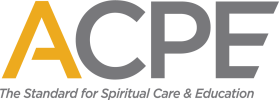A program demonstrates consistent and equitable management of its educational programs for all students.
Rationale
An ACPE accredited program’s policies and procedures assist all parties in understanding individual and shared responsibilities, expectations, mutual accountabilities, and the ways in which they function within the center. Transparency in the provision of written policies and procedures is required.
Indicators
In assessing this area, reviewers will look at the program’s:
A. Defined process for continuous review of policies and procedures
B. Alignment of the program’s policies and procedures with ACPE Policies and Procedures, including the requirement that an ACPE Certified Educator must be engaged by the program to oversee its functioning.
C. Defined process and mechanisms for communicating policies, curriculum, and program expectations to students and to the general public, including its accredited status. All statements in advertising, catalogs, publications, recruiting, and academic calendars shall be accurate at the time of publication. Publications that advertise a program shall include the type(s) and level(s) of education offered and the ACPE telephone number and website address.
Items that must be included in the program’s portfolio:
- Student Handbook that contains all current program specific policies and procedures listed below:
- An admission and recruitment policy that serves to inform the public about qualifications for admission and the program’s non-discrimination policies. Policies must follow local, state, and federal laws related to discrimination.
- As an association devoted to anti-racist and anti-bias practices, ACPE recommends that programs include the following language in their policies: This ACPE accredited program does not discriminate against persons because of race, ethnicity, religious/spiritual tradition, sexual orientation, gender identity, gender expression, age, disability.
- ACPE recommends that a program’s recruitment policy be designed to encourage the development of relationships with local theological schools, seminaries, endorsing bodies, spiritual/values-based orienting system representatives and their local communities to ensure a consistent enrollment and to provide opportunities for qualified and diverse students to attend their programs.
- A financial policy that clearly states fees, payment schedules, refunds, stipends and benefits.
- Grievance/Complaint process for the local program that includes links to ACPE processes as indicated below. _While ACPE recommends that complaints and grievances be addressed at the local level, program policies must indicate that a student may file a complaint directly with ACPE
- Maintenance of Student and Program Records. (See Guide for Program Records)
- Discipline, dismissal, and withdrawal of students.
- Ethical conduct of students that is consistent with the ACPE Code of Professional Ethics.
- Student rights and responsibilities, including individual supervision and consultation.
- Inclusion of or a direct link to the Outcomes and Indicators for Level I/Level II CPE and, if applicable, to the Competencies for Certified Educator CPE.
- Inclusion of or a direct link to criteria for Student Achievement for Level I/Level II CPE Programs and, if applicable, Student Achievement for CEC Programs.
- How a unit will be completed in the event of a substantive change in the program.
- If applicable, a policy for Using Video Conferencing in a unit of CPE
- The student handbook should include a direct hyperlink to the ACPE website for the following Required ACPE Complaint Policies:
- Policy for Complaints Alleging Violations of ACPE Education Standards
- Policy for Complaints Against the Accreditation Commission
- Professional Ethics Violations
- Whistleblower Policy
- An admission and recruitment policy that serves to inform the public about qualifications for admission and the program’s non-discrimination policies. Policies must follow local, state, and federal laws related to discrimination.
- A detailed listing of any complaints filed locally within the program and how each was resolved. Include any educational complaints filed with ACPE. Do not include any ethical complaints filed against a program’s educator directly with ACPE.
- Provide access to publications and websites that include information about programs. Indicate how CPE program makes these available to students and the general public.
- A presentation of the program’s policy review process and how/why changes were or were not made


